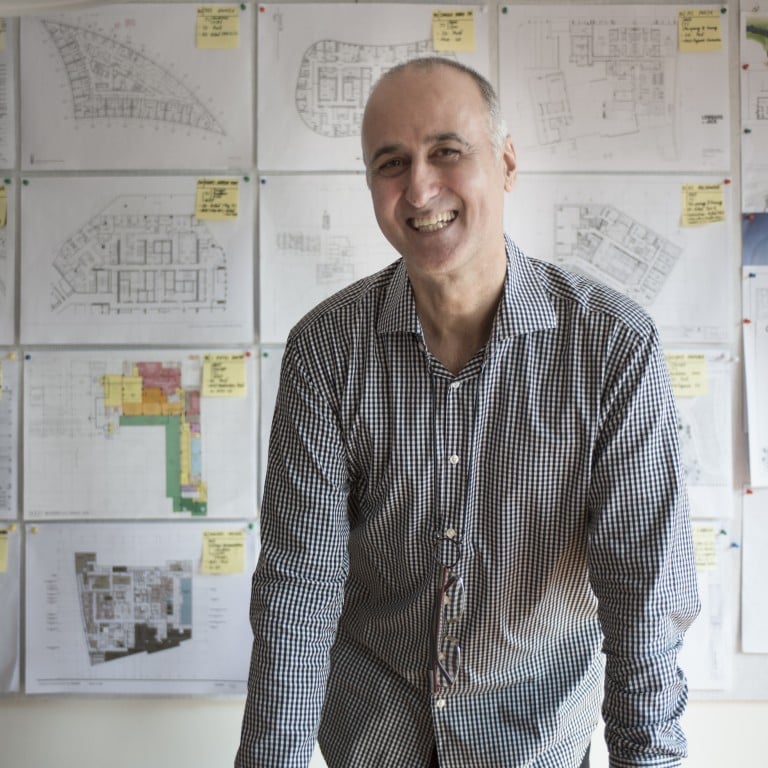
How beating stage 4 lung cancer inspired a hotel manager to become a wellness tourism pioneer
- Given weeks to live after a late-stage diagnosis, Ingo Schweder combined treatment with other measures including a macrobiotic diet, vitamin infusions and yoga
- His experience made him realise that luxury hotels were lacking in their wellness offerings, so bridging the gap between the two became his vocation
A personal victory over cancer inspired Ingo Schweder to pioneer the combination of wellness and luxury hotels.
“When I was 32 I was diagnosed with stage-four cancer and I was given six to eight weeks to live,” says Schweder, CEO and founder of Thailand-based consultancy Goco Hospitality.
He had a 13cm (5in) tumour in his lungs that was growing aggressively. Although he didn’t smoke, Schweder admits that his lifestyle, running luxury hotels, was “work hard, party hard”.
To find a solution, he visited several major international cancer centres, including the renowned Cleveland Clinic in the United States.
A non-smoker who battled lung cancer urges smokers to quit
“They were all very nice, gave me morphine and said, ‘Ingo, sorry there is not much chance for you any more, better go home,’” he says, speaking on a call from his home in Thailand.
“At any age it’s heartbreaking to hear, but when you are barely more than a kid, with dreams and aspirations, I found it very hard to accept.”

He began to prepare for his last few weeks, but then he heard of a trial taking place at University Hospital Heidelberg in southern Germany. With nothing to lose, he signed up.
Why CBD is becoming more popular in stressed out Hong Kong
He stumbled upon a book by the late Japanese scholar Michio Kushi on macrobiotic cuisine which claimed to cure cancer, advocating a diet of wholegrains, fermented foods, pulses, nuts and seaweed, among other things.

Medical wellness resorts were too clinical, not luxurious, he felt. So he thought, “I’m a good hotelier, why don’t I combine them?”
Bridging the gap between wellness and hospitality became his vocation. One of the first projects he worked on in the mid-’90s was Ananda, a spa resort in the foothills of the Himalayas, which within its second year was awarded an accolade by Conde Nast Traveller as a place to “renew body and soul”.
He joined the Mandarin Oriental Hotel Group in 2000 and integrated dedicated wellness offerings into 15 of its hotels before leaving in 2006. Coming from a family of entrepreneurs, he had an itch that needed scratching: he needed to set up on his own.
“I sold my three sexy cars and my two houses and moved into a small apartment in Bangkok and bought a tiny car. I raised capital to hire an amazing team and establish a proper company. But I didn’t pay myself for a while.”
How a tui na TCM massage could benefit you
His company, Goco, consults with luxury hotels to launch spa and wellness facilities, with clients now including five-star hotels such as the Waldorf Astoria, Capella, Four Seasons, Bulgari and The Ritz-Carlton.
He explains that the name combines “Go”, representing advancement, and “co”, from community, in a word that’s easy to pronounce and that represents a community-centric healthy lifestyle. The company also now owns and manages its own spa hotels, including in Bodo, in Norway; Temescal Valley, California; and Daios Cove, Greece.

Goco launched in the aftermath of the global financial crisis. “Although it took a bit longer … I was never afraid,” Schweder says. “If you have a good idea and you know what you’re doing, you will survive. It was very clear that wellness would go gangbusters. It was so obvious the world would need more healing places.”
Goco has so far worked on over 400 projects worth more than US$4.3 billion in 42 countries, from individual hotel spas to wellness resorts and mixed-use developments, from initial idea to realisation and ongoing management.
Nowadays, Schweder continues to be careful about what he eats and exercises nearly every day.
“I eat 80 per cent vegetarian, not strictly macrobiotic but lets call it macrobiotic-influenced … 100 per cent organic only and centred on fish, miso, pickles, grains and vegetables. I practise yoga, meditation and breath work near daily and also have a personal trainer for my weight and cardio work.”
5 wellness retreats that show you how to make lasting lifestyle changes
The Space brand was born in Taipei, in Taiwan, and launched in China in 2016, enjoying three years of growth before the coronavirus pandemic struck.
Now the company has around 3 million subscribers and celebrity trainers who add star power, such as JJ Dancer, who has performed with Beyoncé and Kanye West, and worked with Jessica Alba for the film Sin City 2; and Brett Hoebel, who gets Victoria’s Secret models ready for the runway.
“In China, if you buy a Mercedes-Benz, you get a celebrity trainer driving your new car to you – with some complimentary vouchers for Space Cycle,” Schweder says.

Schweder believes the best model for Space Yoga and Space Cycle is to remain online-focused, while Goco has plans to expand across Europe and Thailand. With aspirations for wellness both on and offline, it seems he has things well covered.

